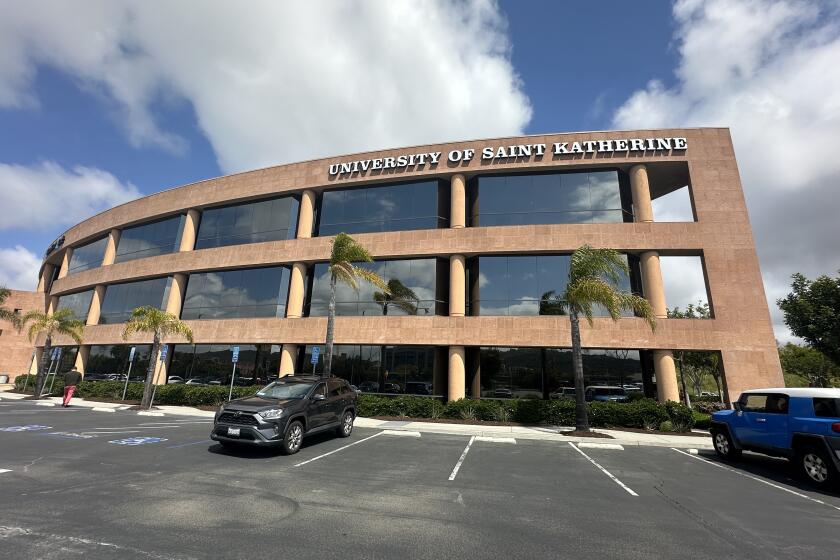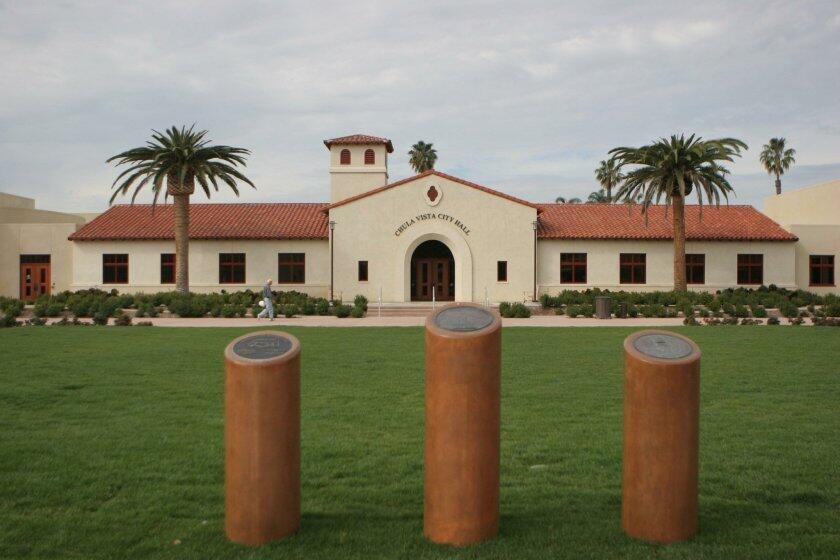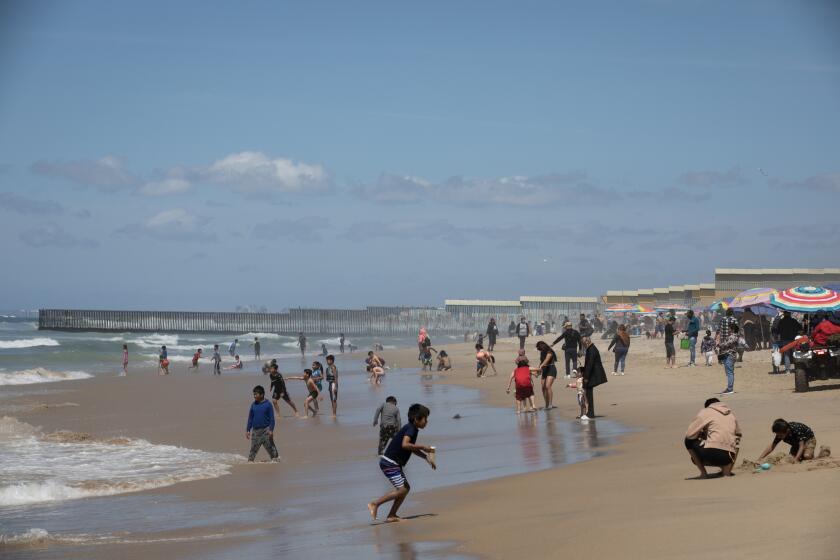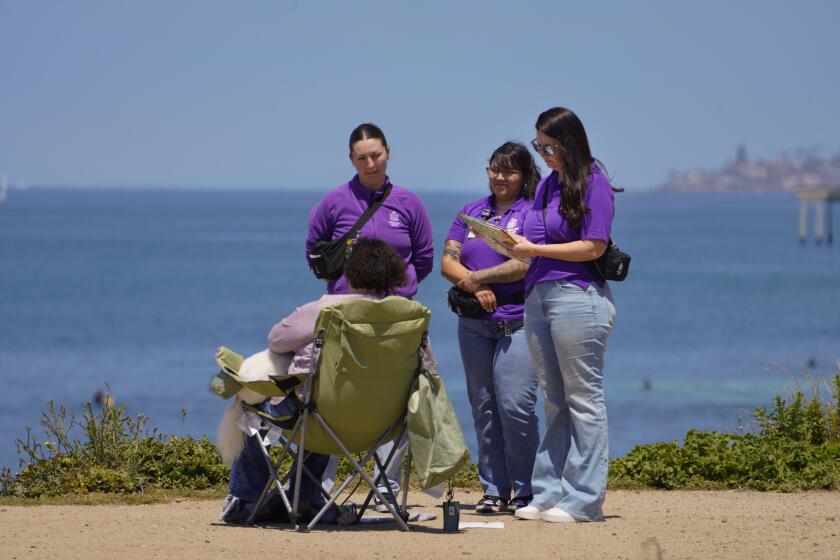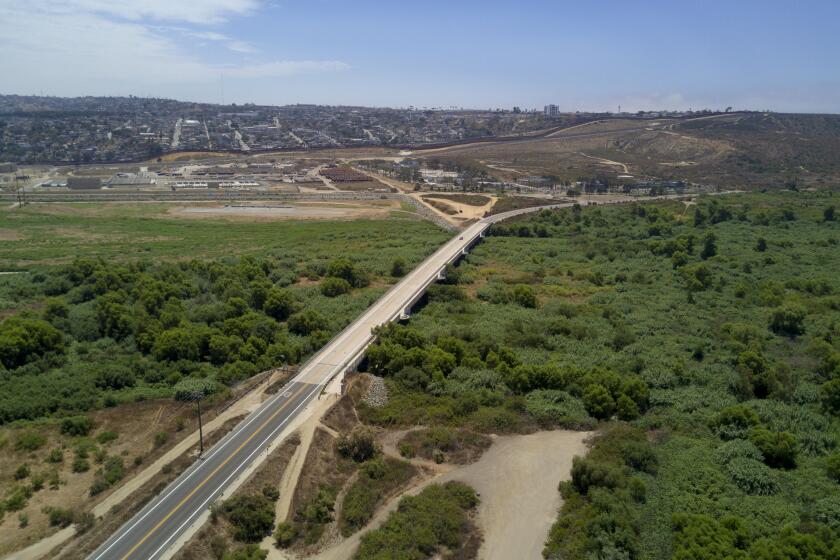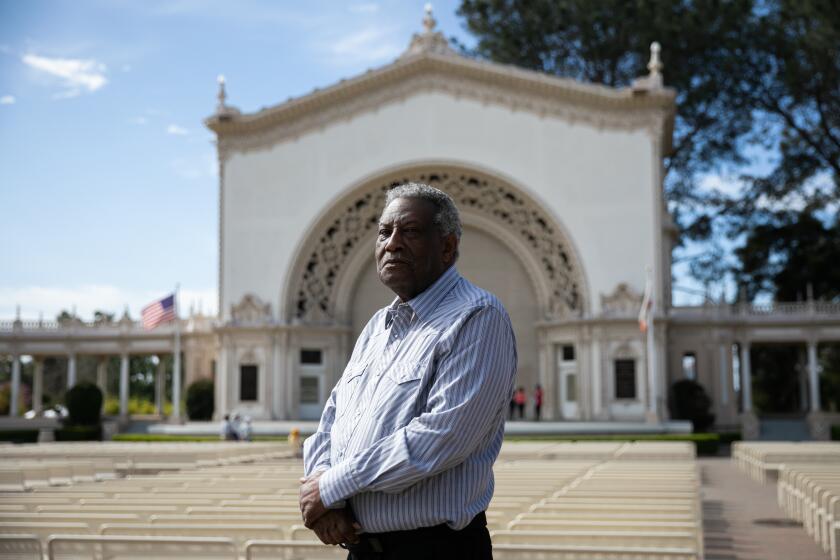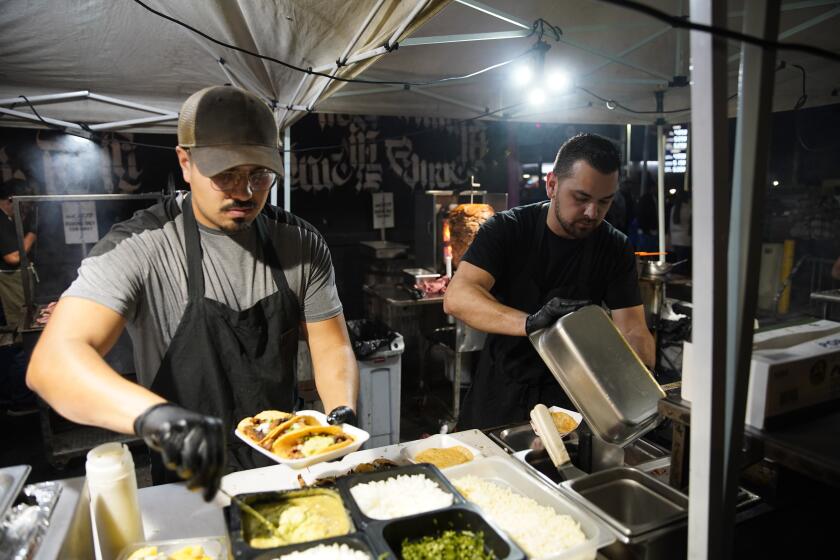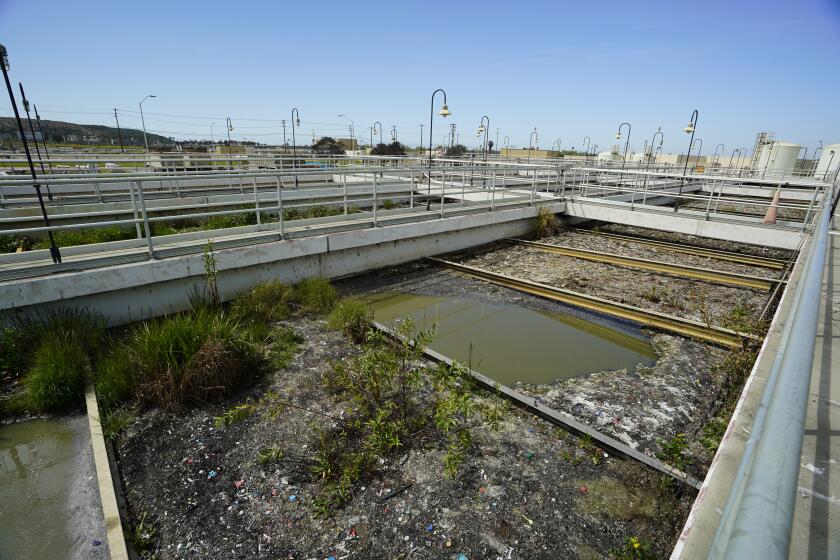Port of San Diego selects developer for zero-emission truck stop in National City
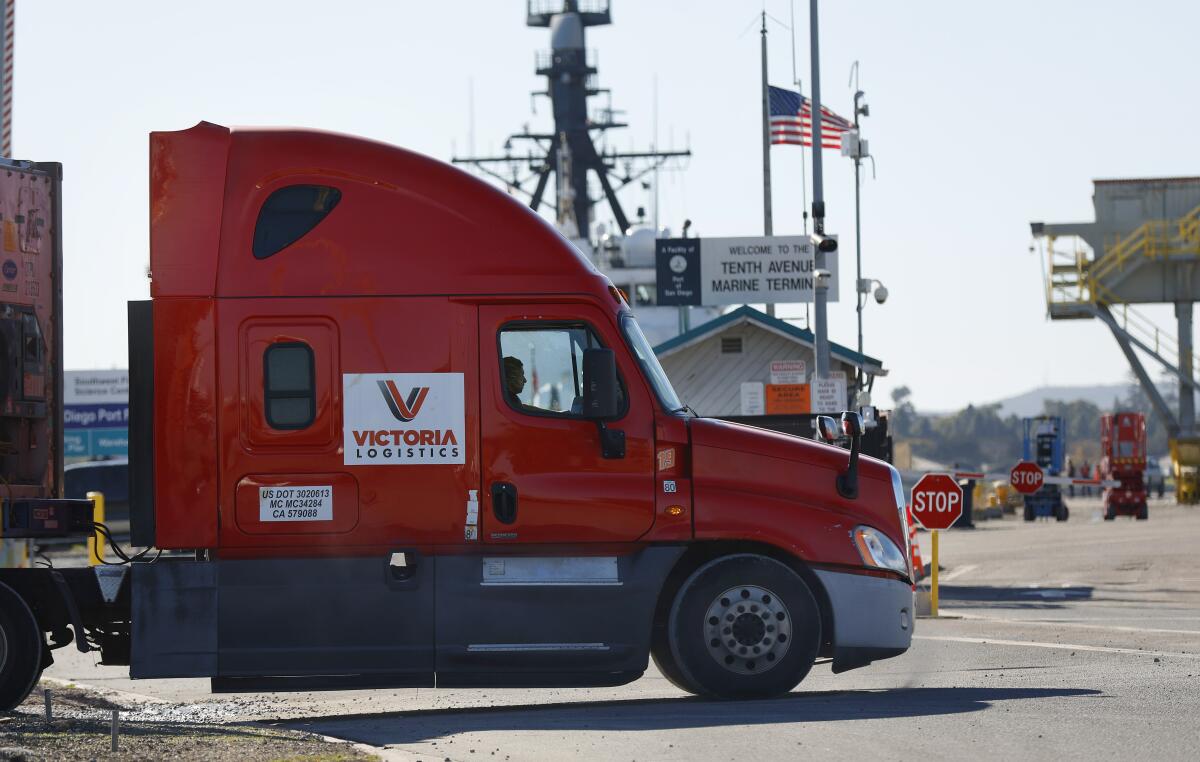
Officials raised concerns about project, including fire risks associated with lithium-ion batteries that electric vehicles use
The Port of San Diego has selected a developer to build and operate a zero-emission truck stop in National City, a project expected to help the district transition to zero-emission technology in the coming years.
Last week, commissioners approved entering into an exclusive negotiating agreement with Skychargers LLC for the truck stop on a 5-acre parcel at 19th Street and Tidelands Avenue.
The Port has been working toward all its heavy-duty trucks that go in and out of its cargo terminals having zero emissions by 2030, as part of a sweeping Maritime Clean Air Strategy that would also have a registry system to track compliance with private truck operators. It needs to develop the infrastructure to power zero-emission trucks to achieve that.
The project consists of 35 dual-port electric vehicle chargers capable of simultaneously charging 70 trucks and a Just Walk Out store, one of Amazon’s new cashier-less convenience stores that automatically charge customers via their Amazon accounts without the need to check out. A restroom facility would also be built.
Skycharger plans to use a 1,720-kilowatt solar array with a 1,060 kW/4,220-kilowatt-hour battery for its energy resource.
The company is requesting a minimum of a 20-year lease. During that term, it would pay the district fixed rent at $1.05 million upon signing the lease. Rent would increase by 2 percent annually. Additionally, Skycharger plans to invest $150,000 toward a community benefit program that would include contributions to National City’s free ride-share service and local jobs.
The company was among six that submitted proposals. Last year, Skycharger and Gage Zero LLC were selected as the finalists.
Gage Zero LLC proposed developing 20 dual-port electric vehicle supply equipment that could charge 40 trucks at the same time on a 3-acre parcel at the same intersection. The company proposed a 400-kW solar array with a 500 kW/2,000 kWh battery. The project also included outdoor seating and a food truck for drivers.
Gage Zero requested a minimum lease term of one decade. It would pay the Port rent of $616,300 per year. According to its bid, the business would pay half its rent upon construction and the full amount when operations began.
Its proposal would use less of the Port’s maritime land than Skycharger, a feature the district preferred. However, Gage Zero’s infrastructure would not advance the Port’s goals of moving toward zero emissions as quickly as Skycharger.
The next steps include negotiating the terms of the lease, which must include addressing concerns National City officials raised about the project. Among them are fire risks associated with lithium-ion batteries that electric vehicles use and how National City, which has historically suffered from toxic diesel emissions, can best benefit from having a truck stop.
Get Essential San Diego, weekday mornings
Get top headlines from the Union-Tribune in your inbox weekday mornings, including top news, local, sports, business, entertainment and opinion.
You may occasionally receive promotional content from the San Diego Union-Tribune.


